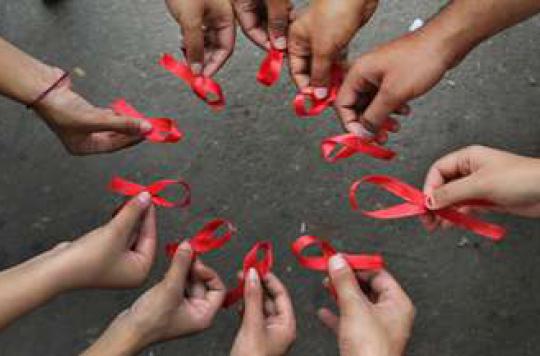The fight against AIDS is progressing in the overseas departments. But preconceived ideas and discrimination are still too numerous, according to the AIDS Research Agency.

HIV is still active in the French West Indies and Guyana, despite a drop in incidence. This is the finding of the National Agency for Research on AIDS and Viral Hepatitis (ANRS) after an investigation into the French Departments of America (DFA) and AIDS. 59 people out of 100,000 are affected by the virus. This is three times more than the national average and the persistence of received ideas is the main culprit.
A fear of HIV
The incidence of HIV is high in the overseas departments: Guyana and Guadeloupe are well above the national level with respectively 147 cases per 100,000 inhabitants and 56 cases. Martinique is in the middle. These bad figures have made the DFA priority areas in the fight against AIDS since 2001, in particular with targeted prevention. These departments are also the most feared of HIV infection. Six in ten respondents say they are afraid for themselves. It is much more than in metropolitan France.
A mistrust of the condom?
Paradoxically, fewer inhabitants of the DFA recognize the effectiveness of condoms in protection compared to 2004, notes the ANRS. They are an immense majority to consider it as an effective protection… but less numerous to describe it as “quite effective” (57% against 69% in 2004). Respondents are also a minority to describe the use of condoms as “something commonplace”. But the ANRS does not observe any relaxation of preventive behavior. Thus, a vast majority of men and women have used a condom for their first sexual intercourse. This is more than in 2004.
Half of the men and one-third of the women used a condom in the year preceding the survey. This time it is better than the metropolis. This growing figure is also a source of hope. Of course, condom use has not increased significantly. But the positive developments are taking place among populations where in 2004 there was a large preventive deficit: people with little education, elderly multi-partners and people very much inclined to religion. It is therefore a sign that prevention campaigns have borne fruit.
Prejudice and discrimination persist
Mistrust persists, however. Perhaps they are linked to the fact that many respondents believe that HIV can be transmitted during protected sex (20%). The ANRS notes that, despite a good knowledge of the modes of transmission of AIDS, too many misconceptions persist and are detrimental to prevention campaigns. For example, one in five people thinks that HIV is transmitted through a mosquito bite. This figure is declining in Martinique and Guadeloupe, but is increasing in Guyana.
Men are also less familiar with HIV than women, although this difference did not exist in 2004. As a result, women have a poor understanding of prevention and have more unprotected sex. Indeed, they often say they are confronted with a refusal to wear the condom on the part of the man.
Discrimination is however very strong in the DFA, underlines the ANRS, particularly in Guyana. Thus, 16% of Guyanese would refuse to work with an HIV-positive person. In Guadeloupe and Martinique, they are 10% to affirm it. Likewise, respondents from Guyana are more likely to say that they would not leave their children or grandchildren to someone with AIDS. It’s better than in 2004, but still too much compared to the metropolis: prejudices and discrimination persist. The ANRS explains this in particular by the fact that few respondents know an HIV-positive person.
.

















